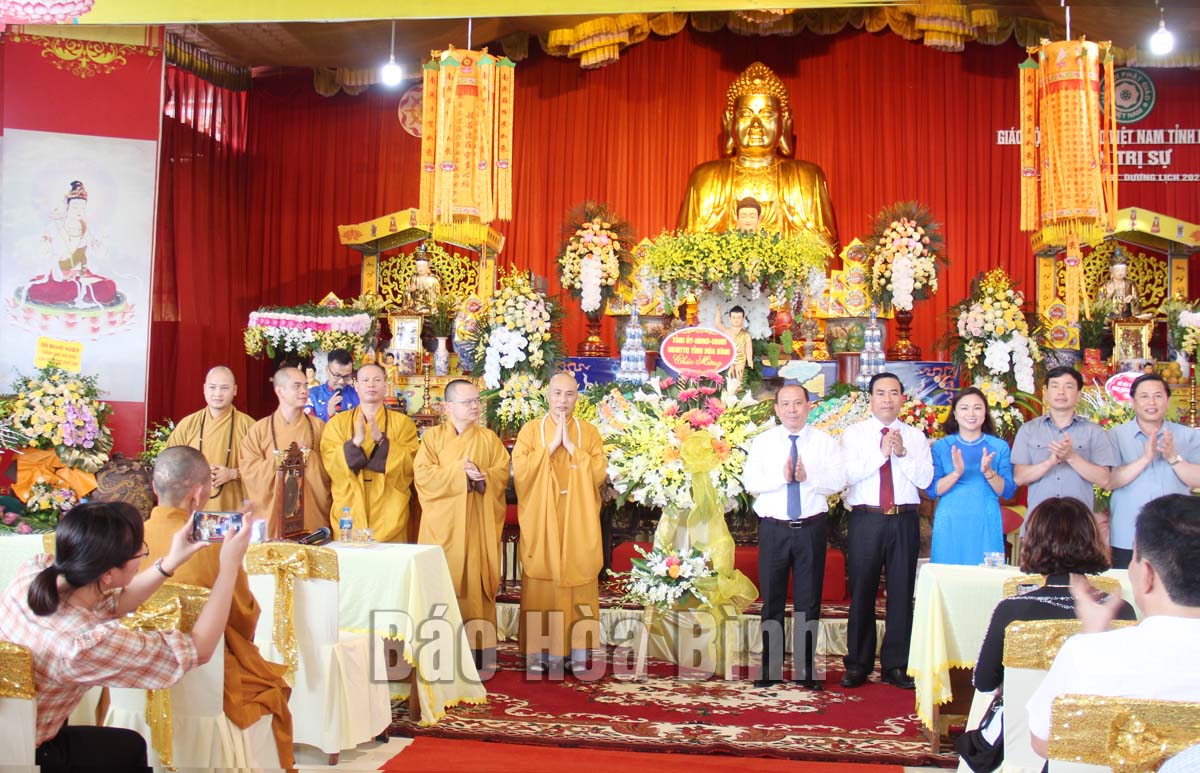



Bui Duc Hinh, Standing Deputy Secretary of the Provincial Party Committee and Chairman of the Provincial People’s Council, and Dinh Cong Su, Vice Chairman of the Provincial People’s Committee, present flowers to congratulate the Provincial Buddhist Sangha.
Buddha’s Birthday is a major ceremony, taking place every year on the full moon of the fourth lunar month to commemorate the birth of Lord Buddha - the founder of Buddhism. Buddha, whose real name is Siddhartha, is the son of King Tinh San and Queen Mada of the Shakyamuni tribe in ancient India. Buddha’s Birthday celebrations have long been a major festival of Vietnam.
Su congratulated the Provincial Buddhist Sangha Chapter, local monks, and nuns. "Over the years, Buddhist monks and nuns in Hoa Binh province have made great contributions to building the homeland, actively participating in patriotic emulation movements and the movement to build a cultural life, new-style rural area, and a civilised city,” he said.
Local Buddhists have come together to help each other develop the economy, sustainably reduce poverty, and mobilise the people to implement Party guidelines, contributing to fulfilling goals in socio-economic development and security and defence in the province, he noted.
He added that he hopes monks and nuns will boost the results to date and further strengthen great national unity, continue to effectively implement the patriotic emulation movement, live a good life, and join hands to build Hoa Binh province into a well-developed locality.
A number of rituals were held, including reciting Buddha blessings, incense offerings, and Buddha bathing rituals.
At the end of May, the Hoa Binh Provincial Ethnic Arts Troupe organized a series of performances for residents in Region 2 and Region 3 communes across the province. Bringing art to ethnic communities in remote, isolated, and especially disadvantaged areas has become a meaningful activity. These are not merely artistic performances but also journeys to disseminate cultural values, enrich spiritual life, and contribute to preserving the cultural identity of ethnic minorities.